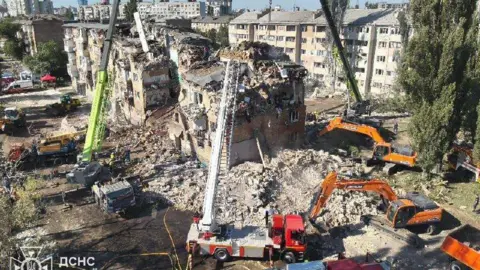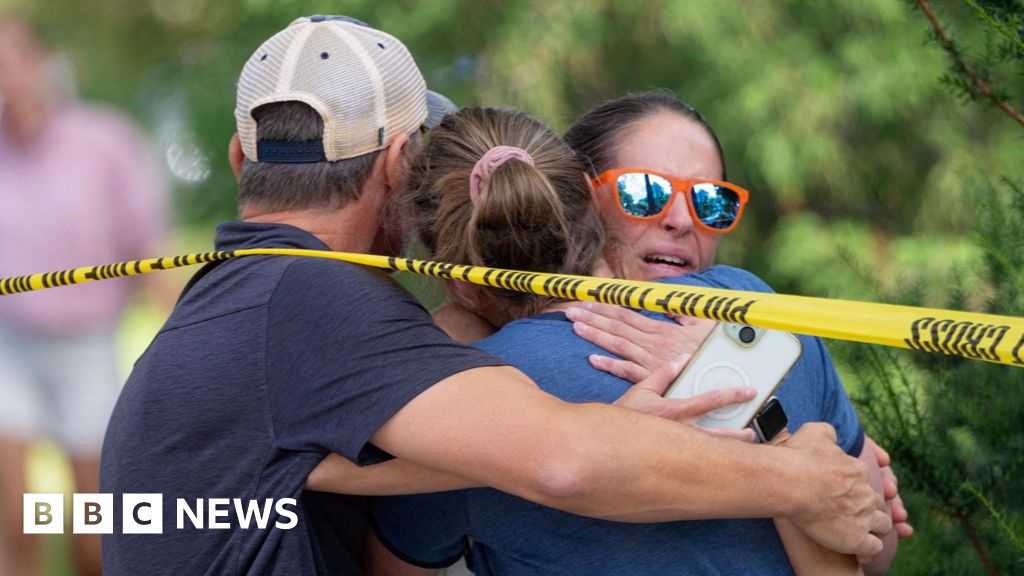In a tense session at the war court at Guantanamo Bay, Khalid Sheikh Mohammed was expected to enter a guilty plea to charges tied to the September 11 terror attacks, only for the proceedings to be halted by a federal appeals court. The 59-year-old, accused of masterminding the 2001 attacks that killed nearly 3,000 people, sat in the courtroom clad in traditional attire and a bright orange beard, a stark contrast to earlier images of him taken after his 2003 capture.
The judge sought confirmation from Mohammed's lawyer regarding his intent to plead guilty, to which the attorney responded affirmatively. However, after a last-minute appeal from US prosecutors, the proceedings were unexpectedly paused just as they were set to begin. This intervention stems from a dispute concerning a controversial plea deal made last year, which included the potential avoidance of the death penalty in exchange for a guilty plea.
With the US government claiming that proceeding with the deal could inflict "irreparable" damage, a three-judge panel has now called for more deliberation before making a decision. Victims’ families, who had traveled at great personal expense and effort to attend the court sessions, expressed defeat and disappointment, noting that each delay brings renewed uncertainty about justice being served. Elizabeth Miller, whose father perished in the attacks, voiced her discontent with the court’s inconsistent proceedings, pointing to the emotional toll these continual delays have wrought on her and others.
The heart of a "forever trial" continues to unfold at Guantanamo, where detainees have been held for over two decades amidst mounting criticism of prison conditions and legal proceedings. Calls to close the facility have been echoed by former presidents, and while conditions may have improved, the legal status of remaining prisoners remains convoluted. As legal complexities mount and resourcing for associated legal battles ramps up, the path to closure seems far from defined.
Simultaneously, a separate transfer of detainees off the base continues to reshape the Guantanamo landscape, with only 15 expected to remain after the latest reduction. The closure of the legal case surrounding Mohammed’s alleged involvement in the 9/11 attacks remains uncertain, as further appeals and deliberations are anticipated in the coming future.
The judge sought confirmation from Mohammed's lawyer regarding his intent to plead guilty, to which the attorney responded affirmatively. However, after a last-minute appeal from US prosecutors, the proceedings were unexpectedly paused just as they were set to begin. This intervention stems from a dispute concerning a controversial plea deal made last year, which included the potential avoidance of the death penalty in exchange for a guilty plea.
With the US government claiming that proceeding with the deal could inflict "irreparable" damage, a three-judge panel has now called for more deliberation before making a decision. Victims’ families, who had traveled at great personal expense and effort to attend the court sessions, expressed defeat and disappointment, noting that each delay brings renewed uncertainty about justice being served. Elizabeth Miller, whose father perished in the attacks, voiced her discontent with the court’s inconsistent proceedings, pointing to the emotional toll these continual delays have wrought on her and others.
The heart of a "forever trial" continues to unfold at Guantanamo, where detainees have been held for over two decades amidst mounting criticism of prison conditions and legal proceedings. Calls to close the facility have been echoed by former presidents, and while conditions may have improved, the legal status of remaining prisoners remains convoluted. As legal complexities mount and resourcing for associated legal battles ramps up, the path to closure seems far from defined.
Simultaneously, a separate transfer of detainees off the base continues to reshape the Guantanamo landscape, with only 15 expected to remain after the latest reduction. The closure of the legal case surrounding Mohammed’s alleged involvement in the 9/11 attacks remains uncertain, as further appeals and deliberations are anticipated in the coming future.





















